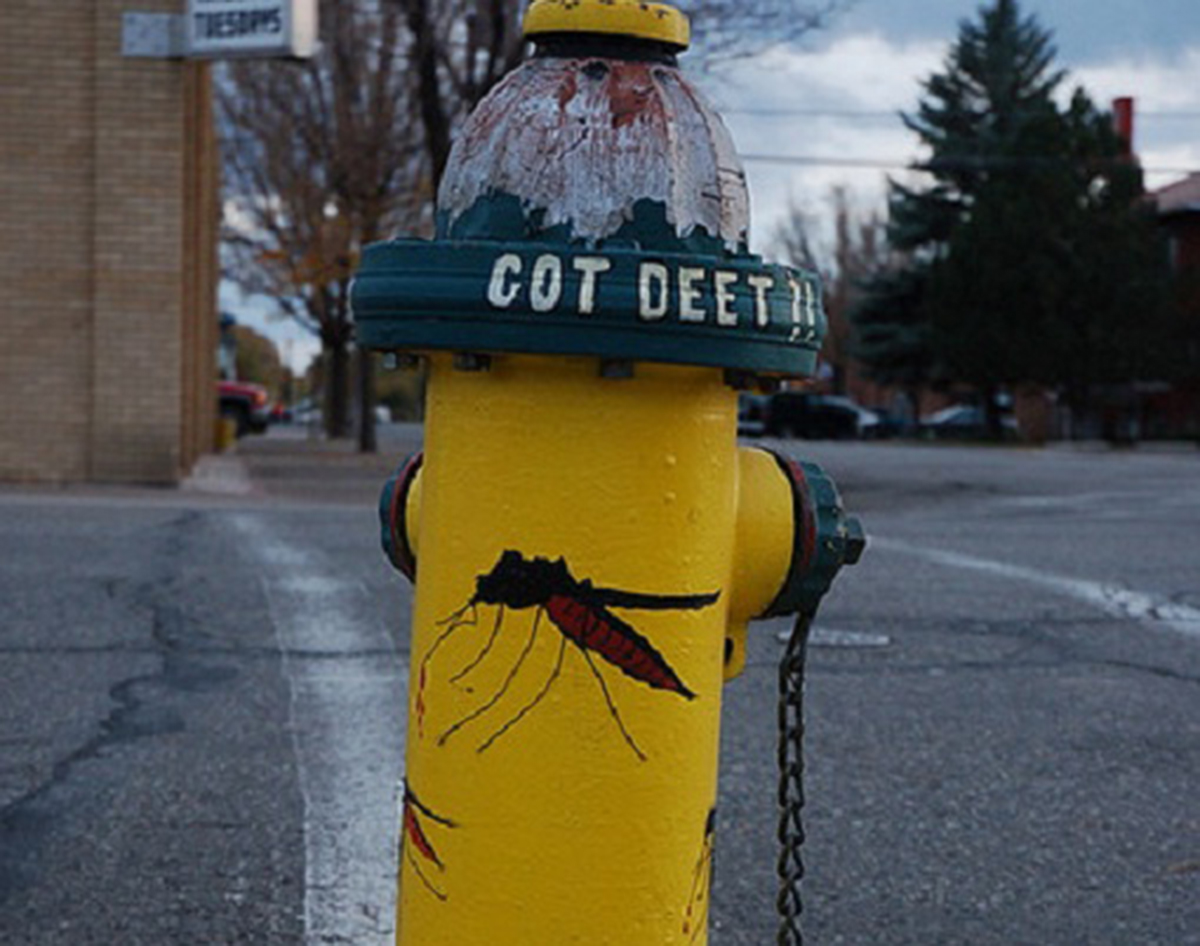Table of Contents
 Claim #4. Listerine and water make an effective personal bug spray
Claim #4. Listerine and water make an effective personal bug spray
Many people don't care to use bug spray products that contain the chemical DEET. To avoid using DEET, people try various home remedies that are more "natural," including spraying themselves with Listerine. A typical story goes something like this:

"The best way to get rid of black flies and mosquitoes is to spray yourself with Listerine. Last year at our Fourth of July picnic everybody had used Off (the DEET-based spray), but we were still getting eaten alive by mosquitoes. I went inside and filled a four-ounce (120 ml) spray bottle with Listerine, and just a little spritz of Listerine every 20 minutes or so was enough to keep the bugs away for the rest of the day. The mouthwash they sell at the Dollar Store works, too."
There haven't been any scientific studies disproving the use of Listerine as a bug spray, but there have been scientific studies that have found that herbal ingredients, such as the thyme and eucalyptus oils found in Listerine, simply don't keep bugs away. The alcohol in Listerine actually attracts some kinds of insects. Personal chemistry is complex, however, so it is possible that on the skin of some people, the combination of Listerine and body odor is just too much for bugs to stand.
Claim #5. Bug spray can make sunblock catch on fire
This just does not happen. You will not be the first person to catch on fire if you combine sunscreen and spray-on bug spray.
However, that does not mean that the combination of sunblock and bug spray in a single product is always a good idea. The combination of DEET and sunblock causes the skin to absorb DEET three to four times faster than when the bug repellent is used alone. Moreover, sun screen has to be reapplied much more often than DEET. If you use a combination product, you will apply much more DEET to your skin than if you used two different products for the two different purposes.[4]
Why does DEET make a difference? Government regulators usually consider DEET to be a safe product, but there are people who experience adverse reactions, and when there are adverse reactions, they are likely to be severe [5].
Some users of DEET have experienced auditory hallucinations. Others have become suicidal. A 30-year-old man who used DEET before taking a sauna developed grandiosity and delusions (a psychological state on the lines of assuming the identify of Jesus, Superman, or Napoleon) that resolved after 10 days of detoxification and never returned. One user of DEET developed hallucinations and paralysis, requiring him to be placed on a ventilator until his liver was able to break down the chemical.
Soldiers who have gone to sleep without showering, leaving DEET on the skin, have developed severe blistering. And a six-year-old child who had a genetic condition called ornithine transferase deficiency died after exposure to the bug repellent.
These adverse reactions, however, happen to about 1 in 1,000,000 users of the product. And DEET doesn't catch on fire.
There are also effects reported have to be considered in the context of the large proportion of the US population regularly using DEET containing insect repellents. Reported side effects include [6]:
- dermal effects
- central nervous system toxicity
- psychosis,
- adverse effects on reproduction
Claim #6. Bug sprays cause bed bugs to multiply more rapidly
The truth is that bed bugs don't just live in beds. They also live behind baseboards, in carpeting, behind wallpaper, and in tiny cracks and crevices throughout a room. They come at night to feed on animals so they can molt and replace their shells.Spraying the baseboards won't increase the number of bed bugs. It may, however, chase them into your bed. If you see tiny red or black streaks in your bed linens, or if you smell the faint odor of granola (the odor of a crushed bed bug), make sure you launder your bed linens in hot water and make sure you don't put a purse or luggage on a contaminated bed.
- Photo courtesy of Zeldagowild on Flickr: www.flickr.com/photos/zeldagowild/263031207/

